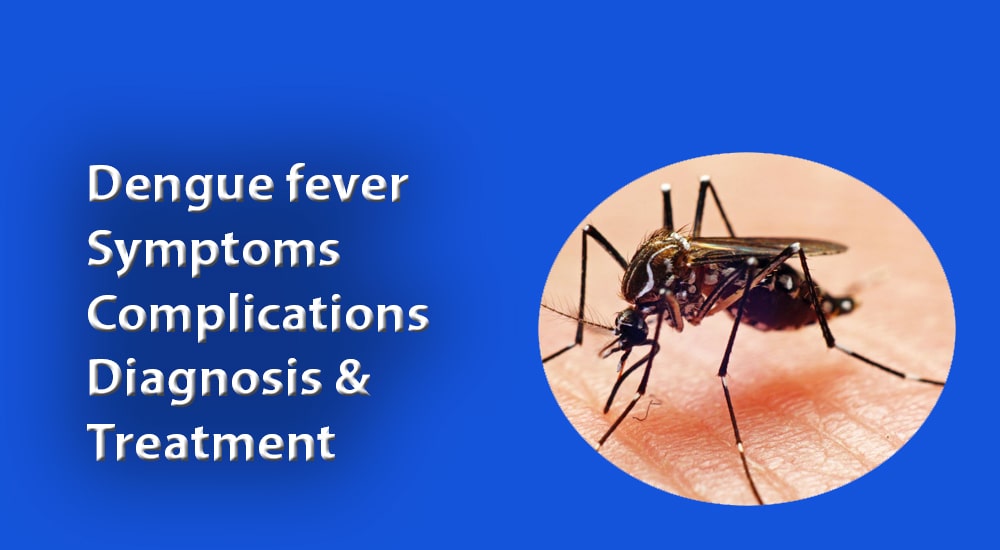
Dengue is a widespread mosquito-borne disease, caused by DEN1, DEN2, DEN3, and DEN4 viruses. The viruses are related to the viruses that cause West Nile infection and Yellow fever. According to the CDC, nearly 400 million dengue infections occur globally each year. Most of the cases arise in tropical and subtropical regions.
This infection generally spreads through the bite of the infected Aedes aegypti mosquitoes. Although this virus does not spread through person-to-person contact, pregnant mothers may pass the virus to their children.
What are the symptoms of dengue fever?
A person with dengue fever may notice symptoms within four to ten days after contracting the virus. The symptoms can range from mild to severe. In some cases, the symptoms can get mistaken for flu symptoms. The common symptoms can persist for a few days and can cause:
People with severe dengue fever may experience:
What is the complication of dengue fever?
Only a few dengue-infected people may develop a serious form of the disease, called dengue hemorrhagic fever.
What is dengue hemorrhagic fever:
People with a previous history of dengue infection and weakened immune systems may develop dengue hemorrhagic fever. This form of the disease may cause:
These symptoms may lead to dengue shock syndrome, which may cause a weak pulse, low blood pressure, and cold and clammy skin. Dengue shock syndrome may become severe and cause excessive bleeding which can result in death.
How is dengue fever diagnosed?
To diagnose a dengue infection, your healthcare provider may recommend blood tests to check for the antibodies of the dengue virus. Healthcare providers generally use a serological or virological test to diagnose dengue infection.
What is the treatment for dengue fever?
Unfortunately, there is no specific treatment for dengue fever. Healthcare providers recommend medicines to reduce the severity of the symptoms. They may recommend pain relievers to lessen headache, joint ache and body pain. Along with the medication, it is important to drink plenty of water to prevent dehydration. If your condition worsens within the first 24 hours of the illness, seek immediate medical care to check for possible dengue complications.
Nearly millions of people get infected with dengue fever globally every year. Fortunately, there are various ways to lower your risk of getting mosquito bites. People with dengue fever usually recover with proper treatment and rest. Seek immediate medical help if the condition gets worse.